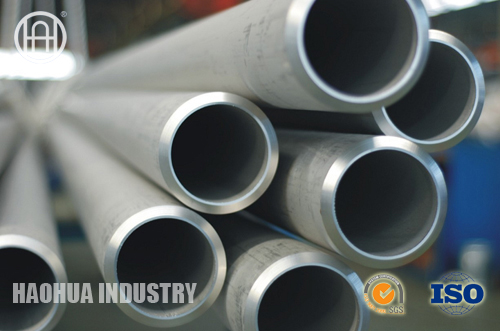


Corrosion resistant Ferritic Stainless Steel Tubes & Pipes
Haohua Industry can provide all types (welded,welded & drawn & seamless) of stainless tube and pipe depending on your application.In addition to standard sizes and traditional grades such as TP304 and TP316,
we can also provide custom tubing and pipe in many of the ferritic,martensitic,and precipitation hardening grades.Special tube finishes are also available.
Austenitic - 304,316,317L,321,347,904L
Ferritic - 430,446,409,29-4-C
Martensitic - 440
Precipitation Hardening - 13-8,15-5,17-4,17-7
Other grades available on application
In our product programme we offer our customers two classes of stainless steels grades that have an excellent resistance to corrosion.Austenitic-ferritic stainless steels (duplex steels) are characterised by their excellent mechanical qualities,particularly their high stress corrosion cracking resistance.They are especially well-suited for maritime applications and in the chemical industry.Their excellent resistance to corrosion enables them to withstand a chloride medium,particularly under mechanical stress.This makes them superior to austenitic steels in many cases.The category of austenitic corrosion resistant stainless steels primarily includes materials with higher alloys (e.g.nickel,chrome and molybdenum).They are resistant to different types of corrosion caused by wet chemical influences,and are still able to maintain an austenitic face centred cubic matrix.This creates a range of highly versatile stainless steels.
High temperature stainless steels
High temperature stainless steels maintain their mechanical properties when exposed to elevated temperatures on either a short- or long-term basis.Depending on the area of application these temperatures can rise e.g.to- 500°C (932°F) in chemical processes- 700°C (1,292°F) in power plant applications- 1,000°C (1,832°F) for furnace engineeringWith their increased concentration of chrome,silicon and aluminium they are especially resistant under the influence of hot gases as well as in salt and metal melting.However,the individual corrosion resistance is always dependent on the surrounding conditions,and can therefore not be precisely determined in a single testing.